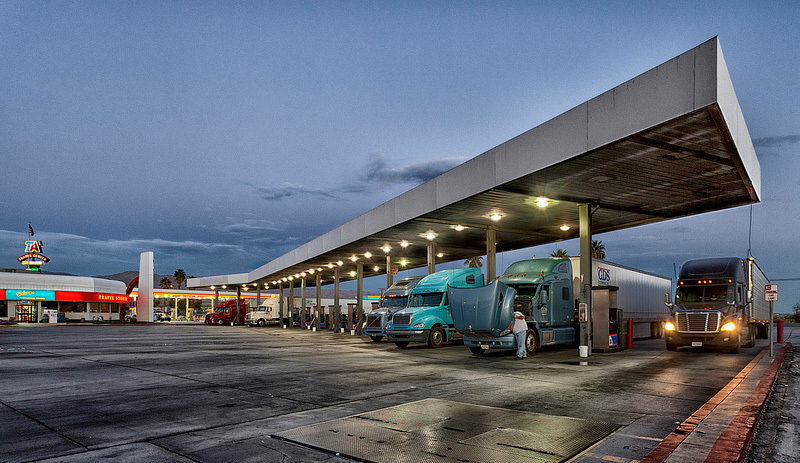
Julie Sorensen, Director
GRS | Corteq
(312) 476-7658
[email protected]
People pay attention when Warren Buffett invests a major chunk of change.
Earlier this month, his company Berkshire Hathaway purchased a 38.6 percent stake in Pilot Flying J, which takes in $20 billion a year in annual revenue from its 750 truck stop-convenience stores scattered across North America.
Pilot Flying J has grown exponentially over the years, and it has become more than the stereotypical truck stop. Other than franchise deals with the likes of Cinnabon and Subway, its locations also have PJ Fresh, a fast-casual concept that bills itself as selling healthier items. Many facilities also have Wi-Fi and showers. Pilot Flying J is private, so it’s hard to get a clear grip on its financials, but its publicly traded competitor, TravelCenters of America, with about 250 locations, saw revenues hit just under $1.3 billion during its latest quarter, a five percent increase from the same year-ago period. In its executive summary for the quarter, the company reports that the volatility in fuel prices, though passed on to consumers, makes it hard to make an assessment of future revenues. Since 2011 TravelCenters has purchased 37 truck stops from 2011 through the end of June and 228 convenience stores from 2013 up until the same period. Among the eateries found in its locations include Arby’s, Pizza Hut and Starbucks.
In addition to assessing revenue-generating opportunities at these properties, investors need careful evaluation of potential environmental issues associated with each property’s Underground Storage Tank (UST) systems, both past and present and any vehicle service-related activities. GRS Group is well-positioned to assist investors evaluate these risks through its GRS | Corteq division.
To get a look at where the truck-stop sector is headed as a whole, it is helpful to assess overall convenience-store trends. That is essentially what these facilities are, although they are typically located off of an interstate exit as opposed to suburban thoroughfares.
Trade publication CSP Magazine says that the coming trends identified at one of the industry’s largest events, the NACS Show, which took place earlier this month, were varied. It found that though a fluctuation in fuel prices might hinder the predictability of future sale when fuel prices are low, consumers tend to do more in-store shopping. Additionally, one survey cited said that customers generally feel as though they get better service at convenience stores than quick-service restaurants. And just like PJ Fresh, many chains are getting creative with the dining options they offer.
Amazon is a looming factor even in this segment of the commercial real estate industry.
Since same-day delivery has become more prevalent in metropolitan areas, a large portion of truck drivers aren’t required to drive the long distances that were once the norm in the industry. So to get truckers and consumers to stay longer and shop more to make up for it, innovation is required–just like the rest of the retail real estate sector.
About GRS Group
GRS Group is a leading provider of commercial real estate (“CRE”) services worldwide. With offices across the United States, Europe, and affiliates around the globe, GRS Group provides local market knowledge with a global perspective for institutional real estate investors, occupiers and lenders worldwide. The GRS Group team has evaluated and advised on over $1 trillion in CRE transactions.
Through the company’s proprietary management process, Global Services Connection, GRS Group delivers an integrated suite of services including Financial Advisory, Transaction Management, Assessment and Title Insurance. We provide a single point of contact, capable of leveraging the GRS Group portfolio of companies and delivering customized solutions to assist our clients in achieving their investment goals.

